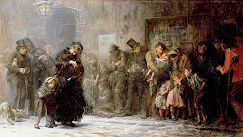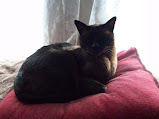LOVE AND LOATHING : AN ALTERNATIVE ST VALENTINE'S
Wednesday 14 February 2024 7-8pm
Great fun! Social history, readings, poetry and food. Find out just what a Vinegar Valentine is ;) In this intriguing online event, you will discover the history of St Valentine and the customs associated with the day.
There will be scandalous tales of love and poison - beware of the chocolates you are given.
You'll discover which foods were said to inflame passion and which foods given by a lover you should refuse. Which foods will seduce and which foods will kill?
Delight in the history and be tempted by the food in this fun and informative hour online.
This event is illustrated with slide shows and practical food demonstrations. Dramatic social history will be brought to life and poetry both romantic and humorous will be shared.
Workbook and receipes sent post-event.
Early bird discount £15.50 until 28 January, £20.50 thereafter
SPECIAL VALENTINE'S OFFER - PAY FOR ONE AND WATCH WITH PARTNER OR FRIEND!

The fascinating, colourful Victorian narrative and figurative paintings tell us much more than the main picture and are full of symbolism and meaning, exposing other features hardly noticed: revealing massive social, economic and cultural changes, turmoil and emotions.
MET courses taught at Pelham Street Brighton BN1 4FA - unless otherwise stated.
All other courses and events here on this blog.
N.B. History courses may contain outdated attitudes, cultural depictions and language which cause offence today. They have to be viewed from an historic perspective. When discussing the content these views are not those of the tutor. If you feel you may be uncomfortable about this, please do not enrol.
Whiteway Lane, Rottingdean (Brighton) BN2 7HB
Nearby car park on seafront road. Buses stop on seafront outside White Horse Inn, and no. 2 in the High Street. Next to Grange Museum and tea garden
Elegance and Enlightenment: English Society in the Eighteenth Century
We study an age of elegant living – and not so elegant living in countryside and town. This was a time of enlightenment, the arts, culture, literature, the Grand Tour, scientific experiment, observance of nature and new ideas.
Science, anatomy and the study of the human form were of great interest. There were many innovators, inventors and original thinkers spawned in this era, including the Lunar Society; and we see the Industrial Revolution and all that it inspired, including the use of mass-produced goods, textiles, machinery and technology.
This was also the age of travel with improvements to roads and carriages which led to coaching inns. The era saw the beginnings of consumerism and shopping and was a period of ideas and advancement in every form and the beginnings of our modern society.
Tuesday 10 weeks 10.30am-12.30pm Start 16 January 2024
Enrol: https://www.rwc.org.uk/18thcent FULL

Ref MACL011D1A 11am-1.30pm
Fee £91. Places are limited. - FULL
Enrol: https://www.brightonmet.ac.uk/courses/the-novel-as-social-history-rebellion/
The Golden Summer of the Edwardians (1902-1914)
Fashion History from the 18th to 20th Centuries: how it defined and shaped society, style and culture
This course is for lovers of fashion and the fascinating social and cultural history of Britain. It examines how social history has inspired fashion, just as clothes have influenced social and cultural history. We examine historic inspiration that has formed and forms innovative fashion, designers and style.
We examine how the social and cultural background of the eighteenth and nineteenth centuries influenced British fashion then and now. We focus on aspects of trendsetting style 1700s-2000, such as the voluminous and extravagant court dresses and exuberant hairstyles of the Georgian period and the dapper Regency dandy; Victorian crinoline, bustle and aestheticism; Edwardian Art Nouveau, elegant Art Deco, wartime recycling, swinging sixties, and subculture of mods, rockers, goths, skinheads and punks. We see how the wheel of fashion and style turns again and again.
You will learn how to read fashion and how it informs us and what your clothes say about you. We will analyse key style developments and designers such as Mary Quant and the “Swinging Sixties”. A really exciting and fascinating course that will make you think differently about style, clothing, its influences and origins, and what you and others wear.
Illustrated with masses of fashion illustrations and powerpoint slideshows.
Ref: MACL045D1A 10 weeks Tuesday 1-3pm start 23 April
Fee £152 Half-price concession for those on benefits.
Enrol: https://www.brightonmet.ac.uk/courses/fashion-history-from-the-18th-to-20th-centuries-how-it-defined-and-shaped-societystyle-and-culture/

For those who love the iconic style of Art Deco and clean lines of Modernism. The smoothly distinctive style dominated all aspects of domestic and cultural life and was notable for its architectural and design features. Iconic and elegant, it was used to furnish homes in a new and exciting fashion, utilizing modern technology and materials, and various electrical devices.
The Decorative Movement, Modernism or ‘moderne’, later described as ‘Art Deco’, was based on classical and other influences, including Egyptian - after the 1922 opening of Tutankhamun’s tomb in 1922 by Howard Carter and Lord Carnaervon .
The distinctive iconic style of space, light and speed, vibrant with colour, its modern designs full of sharp patterns, was also described as "jazzy” and it utilised modern technology and innovations such as plastic, chrome, aluminium and electricity. Smooth lines and geometric patterns featured on architecture, advertising, fashion, jewellery, furniture, glass, ceramics, lighting, metalware, technology and influenced cinema.
The distinctive ‘Modernist’ style dominated all aspects of domestic and cultural life and was notable for its architectural and design features. The elegant style was used to furnish homes in a new and exciting fashion.
Illustrated with colourful powerpoint slideshows and illustrations.
Enrol: https://www.brightonmet.ac.uk/courses/art-deco-and-modernism-iconic-culture-in-the-inter-war-years-1918-1939/
MET at The Church of the Holy Cross Church Hall, Downsway, Woodingdean, Brighton, BN2 6BD
Mid-Victorian Life and Leisure (1850-1870)
🌞 Summer in the City: Exploring Brighton’s Unique History 🌞
If you are interested in the distinctive history of Brighton and how it evolved, and enjoy walking through the city and discovering places you might not know, then you will enjoy this course comprising of three classroom sessions and three field trips.
(3 classroom sessions and 3 Brighton field trips)
Enrol: https://www.brightonmet.ac.uk/courses/summer-in-the-city-exploring-brightons-unique-history/
🌞 The Novel as Social History: Books for Summer Reading 🌞
If you love books, reading, social and cultural history, and lots of lively discussion in a relaxed, informal atmosphere then this one-day course is definitely for you.
This is a unique one-day study session comprising literature and social and cultural history. Within the pages of the novel we discover more than a story - enthralling ‘other’ information about people, relationships, class and place.
We discuss books for summer reading from a selection of three or four novels with lots of background social and cultural history to be read before class (whole or part), plus further recommendations.
A different, unusual, exciting way of reading and learning in a friendly, relaxed group. We We also view extracts of one of the novels that was made into a film.
You will be expected to participate in group discussion in a relaxed and friendly atmosphere. Novels are: “A Room with a View “ by E.M. Forster (1908), “Landscape in Sunlight” by Elizabeth Fair (1953) “Travels with my Aunt” by Graham Greene (1969).
Ref MACL144D1A Saturday 8 June 11am-3pm Fee £31
Enrol: https://www.brightonmet.ac.uk/courses/history-the-novel-as-social-history-books-for-the-summer/
Places are limited to 12 so early booking advised
LOVE AND LOATHING : AN ALTERNATIVE ST VALENTINE'S
14 February 2024 7-8pm
FEEDING THE POOR AND FEASTING WITH THE WEALTHY
Social history and historic food showing how the poor ate humbly in comparison to the lavish banquets and dinner parties of the wealthy. Date TBA (very popular 2023)
DALLIANCE AND DINING IN GEORGIAN AND REGENCY PLEASURE GARDENS
Date TBA (very popular 2023)
TAKING TEA ON A SUMMER AFTERNOON
Mar/April/June date TBA (very popular 2023)
Further details and links will appear soon later in year - declare an interest/reserve a place:
****
Study Days at the West Pier Centre, Lower Prom Arches 2024
Study the novels, characters and inter-war social and Brighton history in a relaxed and friendly atmosphere, right by the beach and sea
Spring/Summer dates to be announced. Please contact me if you are interested
<<<<<<<<<<<<<<<<<<<<<<<<<<<<<<<<<<<<<<<<<<<<<>>>>>>>>>>>>>>>>>>>>>>>>>>>>>>>>>>>>>>>>>>
Sarah Tobias MA, BA Hons, Dip Eur Hum
103-105 King's Road Arches, Brighton, BN1 2FN


















No comments:
Post a Comment